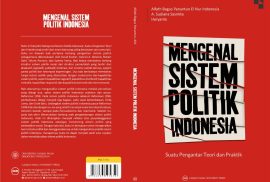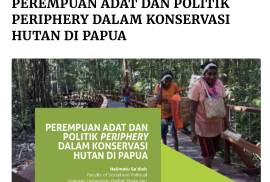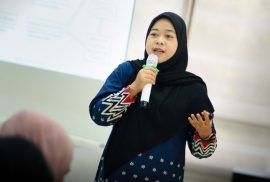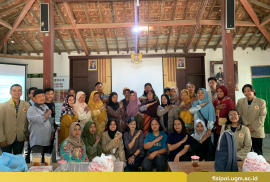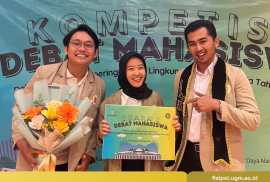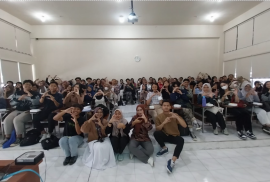The Faculty of Social and Political Sciences (FISIPOL) at Universitas Gadjah Mada (UGM) continues to affirm its academic excellence with the launch of a new scholarly book authored by three faculty members from the Department of Politics and Government: Alfath Bagus Panuntun El Nur Indonesia, M.A., A. Sudiana Sasmita, Ph.D., and Prof. Haryanto.
Titled “Understanding Indonesia’s Political System: An Introduction to Theory and Practice”, the book offers a significant contribution to political science literature in Indonesia. It serves as a strategic reference for students, academics, and practitioners seeking a deeper understanding of the complexities of the country’s political landscape.

